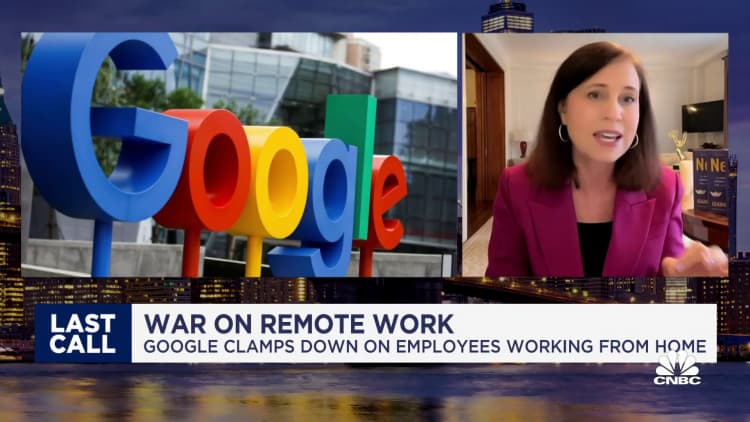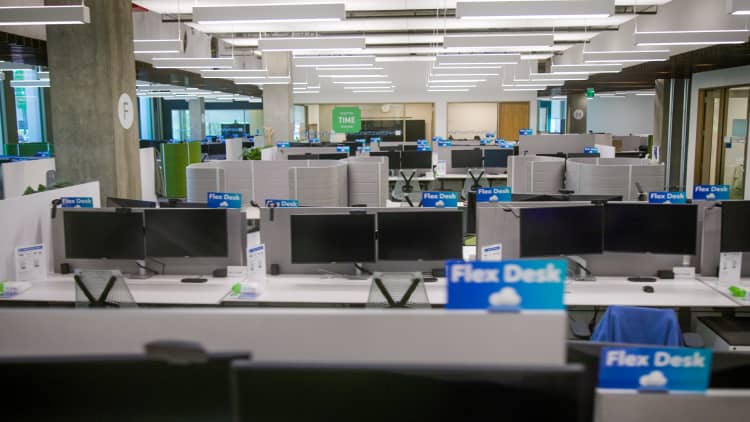Singapore’s workers want to stay remote, but employers are backtracking on flexibility


When the IT company she was working for asked employees to return to the office “at least three times” a week in April, Samantha was dismayed.
“The reason was mainly for collaboration, but many employees were not convinced,” said the 30-year-old Singaporean.
“Especially as we’re supposed to be a data-driven company, but the company gave no data that return-to-office is better than work-from-home.”
She added that the company’s previous stance was that teams would meet in person once a week and employees can decide which other days they want to return to the office.
The scaling back of remote working became a major push factor for Samantha to quit that job for another that provided flexibility.
“I think 9-to-6 [in an office] is outdated and workers should be empowered to make good judgments and work at their own time, as long as they get their work done,” she added.
According to new data from employment site Indeed, employers’ attitude toward remote work are at odds with the preferences of jobseekers in Singapore.
While working professionals remain “keenly interested” in remote work, employers were far less likely to mention “work from home” in postings, the job portal told CNBC Make It.
In May 2023, 6.6% of job postings explicitly mentioned phrases such as “work from home” or “remote work” in their job descriptions.
That remains well below the levels observed in 2021, which peaked at almost 12% in December.
It’ll be interesting to see whether this apparent disconnect between employers and jobseekers hampers the ability of some employers to attract suitable candidates going forward.
Callam Pickering
APAC senior economist, Indeed
By contrast, jobseeker interest in remote work “remains elevated” with 3.5% of searches, Indeed added. Terms such as “full-time,” “remote work” and similar phrases are also consistently among Singapore’s most popular search terms.
“Jobseekers continue to value the flexibility offered by remote work,” said Callam Pickering, Asia-Pacific senior economist at Indeed.
“It’ll be interesting to see whether this apparent disconnect between employers and jobseekers hampers the ability of some employers to attract suitable candidates going forward.”

According to LinkedIn’s Global Talent Trends report, seven out of 10 leaders in APAC believe their companies will be “forced to wind back progress” on flexible working.
“Today’s economic climate is causing some [companies] to pull back on the flexibility and learning and development initiatives introduced during the pandemic,” said Guy Berger, LinkedIn’s principal economist.
For Samantha, a job with flexibility doesn’t have to be “exclusively remote,” but it should give employees the choice to decide when they want to be in the office.
“It doesn’t have to be fully remote but it’s nice to know your employer trusts you, which in turn makes you happier and more willing to go above and beyond for the company,” she added.
Job postings in decline
Singapore job postings on the portal are on a decline, with numbers hitting lowest levels since September 2021.
Indeed said job postings in May 2023 were 16.5% lower than a year ago — marking the seventh consecutive monthly decline.
Indeed data showed there’s been “recent weakness” concentrated in the health-care sector. Postings for pharmacy and dental roles for example, decreased by 38% and 33% respectively over the past three months.
We anticipate that job postings will continue to moderate over the remainder of the year, consistent with the slowdown in economic conditions.
Callam Pickering
APAC senior economist, Indeed









